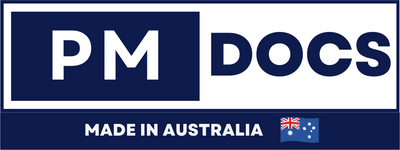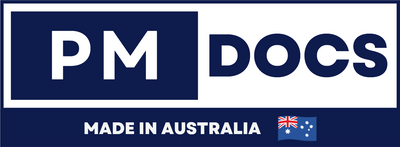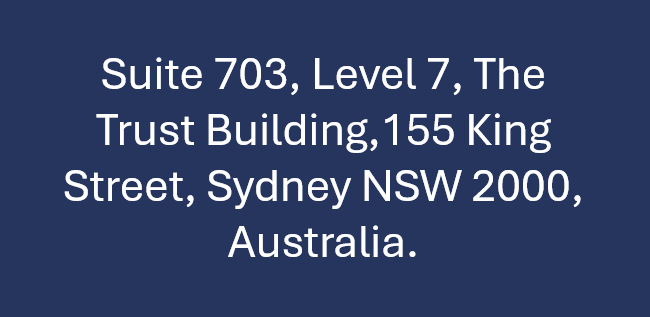ISO Certified Companies In Australia Directory & Case Studies
The Gold Standard Down Under: Navigating ISO Certified Companies In Australia & Their Success Stories
In today's fiercely competitive global marketplace, quality, efficiency, and reliability aren't just buzzwords – they're prerequisites for survival and growth. For Australian businesses, achieving ISO certification is often the gold standard that signals a commitment to these very principles. It's a powerful statement to customers, partners, and regulators alike, demonstrating adherence to internationally recognised best practices.

But how does one find these exemplars of excellence in Australia? And what real-world impact does ISO certification have on their operations and success? This comprehensive guide will explore the landscape of ISO certified companies in Australia, offer insights into finding them, and delve into compelling case studies that showcase the transformative power of these standards.
What Is ISO Certification And Why Does It Matter In Australia?
ISO (International Organization for Standardization) is an independent, non-governmental international organisation that develops standards to ensure the quality, safety, and efficiency of products, services, and systems. Achieving ISO certification means that a company has met the requirements of a specific ISO management system standard, verified by an independent third-party certification body.
For Australian businesses, ISO certification offers a multitude of strategic advantages:
-
Enhanced Credibility & Trust: It instils confidence in customers, suppliers, and stakeholders, showcasing a commitment to quality and consistency.
-
Competitive Edge: Many tenders, especially in government and large corporate sectors, outright require or heavily favour ISO certified suppliers.
-
Improved Operational Efficiency: The process of achieving certification often leads to streamlined processes, reduced waste, and better resource management.
-
Risk Management: Standards like ISO 27001 (Information Security) or ISO 45001 (Occupational Health & Safety) help identify and mitigate critical business risks.
-
Market Access: For Australian companies looking to export, ISO certification is frequently a prerequisite for doing business internationally.
- Continuous Improvement Culture: ISO frameworks encourage a culture of ongoing review and improvement, ensuring the business remains agile and responsive.
Finding ISO Certified Companies In Australia: Your "Directory" Guide
While there isn't a single, government-maintained, comprehensive "directory" listing every single ISO certified company in Australia across all standards, there are several effective ways to identify them and understand the certification landscape.
-
Certification Body Registers: The most direct route is to check the registers of accredited certification bodies operating in Australia. These bodies conduct the audits and issue the certificates. Some of the prominent ones include:
-
SGS Australia: A global leader in inspection, verification, testing, and certification services. They maintain a public register of certified clients.
-
BSI (British Standards Institution): Another major international player with a significant presence in Australia, offering a client directory.
-
SAI Global: A well-known Australian-based certification body (now part of Intertek SAI Global) with a searchable database.
-
DNV: A global provider of assurance and risk management services, including management system certification.
-
TÜV Rheinland: A global leader in independent inspection services, with a strong presence in Australia.
Tip: Visit the websites of these certification bodies and look for their "Client Directory," "Certified Companies," or "Certificate Search" sections.
-
SGS Australia: A global leader in inspection, verification, testing, and certification services. They maintain a public register of certified clients.
-
JAS-ANZ (Joint Accreditation System of Australia and New Zealand): JAS-ANZ is the government-appointed body responsible for accrediting certification bodies in Australia and NZ. While they don't list every certified company, their website provides a directory of accredited certification bodies. Ensuring a company's certification is issued by a JAS-ANZ accredited body adds an extra layer of confidence.
-
Company Websites and Marketing Materials: Most ISO certified companies proudly display their certification logos on their websites, marketing collateral, and even business cards. Look for phrases like "ISO 9001 Certified," "ISO 14001 Compliant," or the specific ISO standard logo.
-
Industry Associations & Procurement Platforms: Certain industry associations may list their members who hold specific certifications. Additionally, government and large corporate procurement platforms often specify ISO requirements, effectively creating a de-facto list of certified suppliers for particular tenders.
Table: Key ISO Certification Bodies Operating In Australia
| Certification Body | Accreditation (Example) | Common Standards Offered | Focus/Specialisation (Examples) |
|---|---|---|---|
| SGS Australia | JAS-ANZ | 9001, 14001, 45001, 27001, 22000 | Global leader, diverse industries |
| BSI Australia | JAS-ANZ | 9001, 14001, 45001, 27001, 55001 | Strong in quality, risk, and asset management |
| SAI Global | JAS-ANZ | 9001, 14001, 45001, 22000, HACCP | Australian heritage, broad sector coverage |
| DNV Australia | JAS-ANZ | 9001, 14001, 45001, 27001, IATF 16949 | Maritime, Energy, Oil & Gas, Healthcare |
| TÜV Rheinland | JAS-ANZ | 9001, 14001, 45001, 27001, Medical Devices (13485) | Industrial, product testing, healthcare |
Table: Common ISO Standards Relevant To Australian Businesses
| ISO Standard | Description | Key Relevance for AU Businesses |
|---|---|---|
| ISO 9001 | Quality Management Systems (QMS) - ensuring consistent products/services. | Universally applicable; enhances customer satisfaction & efficiency. |
| ISO 14001 | Environmental Management Systems (EMS) - managing environmental impacts. | Crucial for sustainability, regulatory compliance, and green credentials. |
| ISO 45001 | Occupational Health and Safety (OH&S) Management Systems. | Demonstrates commitment to workplace safety, reducing incidents & legal risk. |
| ISO 27001 | Information Security Management Systems (ISMS) - protecting data. | Essential for IT, finance, healthcare – any business handling sensitive data. |
| ISO 22000 | Food Safety Management Systems. | Critical for food manufacturers, processors, and supply chain. |
| ISO 13485 | Quality Management Systems for Medical Devices. | Mandatory for medical device manufacturers and suppliers. |
| ISO 50001 | Energy Management Systems - improving energy performance. | For businesses looking to reduce energy consumption and costs. |
Case Studies: ISO Success Stories In Australia
These hypothetical case studies illustrate the tangible benefits of ISO certification for Australian companies:
Case Study 1: Streamlining Manufacturing with ISO 9001 & 14001
Company: "Precision Fabrication Co." – a medium-sized metal fabrication business based in Melbourne, specialising in custom components for construction and infrastructure projects.
Challenge: Precision Fabrication Co. was experiencing inconsistent product quality, leading to rework and customer complaints. They also faced increasing pressure from clients and regulatory bodies regarding their environmental impact, particularly waste management and energy consumption. This limited their ability to bid on larger, more lucrative government contracts.
Solution: The company embarked on dual certification for ISO 9001 (Quality Management System) and ISO 14001 (Environmental Management System). This involved:
-
ISO 9001: Standardising their design, production, and quality control processes. Implementing rigorous inspection checkpoints and a robust non-conformance management system.
- ISO 14001: Conducting an environmental impact assessment, setting targets for waste reduction and recycling, optimising energy use in their machinery, and training staff on environmental best practices.
Impact & Benefits:
-
Improved Quality & Customer Satisfaction: Rework decreased by 30%, and customer complaints dropped significantly, enhancing their reputation.
-
Cost Savings: Reduced waste and optimised energy consumption led to a 15% reduction in operational overheads.
-
New Market Opportunities: With both certifications, Precision Fabrication Co. successfully secured several major government infrastructure contracts, expanding their market reach.
- Enhanced Employee Engagement: Employees felt a greater sense of pride and responsibility in their work, knowing the company was committed to quality and sustainability.
Case Study 2: Securing Data and Trust with ISO 27001
Company: "SecureNet Solutions" – a Sydney-based IT consultancy and managed services provider handling sensitive client data, including financial and personal information.
Challenge: As a provider of critical IT services, SecureNet Solutions was acutely aware of the growing threat of cyber-attacks and data breaches. Clients were increasingly demanding assurances about data security, and the company needed a robust framework to manage information risks comprehensively, without disrupting their agile operations.
Solution: SecureNet Solutions implemented ISO 27001 (Information Security Management System). This rigorous process involved:
- Identifying all information assets and their associated risks.
- Developing and implementing policies for access control, incident management, business continuity, and data encryption.
- Conducting regular risk assessments and internal audits.
- Comprehensive staff training on information security protocols.
Impact & Benefits:
-
Robust Data Protection: Significantly strengthened their defence against cyber threats, reducing the likelihood of data breaches.
-
Enhanced Client Trust: ISO 27001 certification became a key selling point, demonstrating a best-practice approach to data security, which was critical for attracting and retaining clients in sensitive sectors.
-
Competitive Advantage: Enabled them to differentiate from competitors and successfully bid for contracts that required stringent information security compliance.
- Improved Business Resilience: Developed robust incident response plans, ensuring quicker recovery from any security incidents.
Case Study 3: Building a Safer Workplace with ISO 45001
Company: "Aussie Build Group" – a mid-sized construction company operating across New South Wales, involved in residential and commercial projects.
Challenge: The construction industry inherently carries high risks to worker safety. Aussie Build Group had experienced some minor workplace incidents and near misses, leading to concerns about employee well-being, potential legal liabilities, and project delays. They wanted to proactively cultivate a stronger safety culture and demonstrably reduce risks.
Solution: Aussie Build Group pursued ISO 45001 (Occupational Health and Safety Management System) certification. This involved:
- Thorough hazard identification and risk assessment across all project sites.
- Developing comprehensive safety procedures and method statements for all tasks.
- Implementing a robust incident reporting and investigation system.
- Providing extensive safety training to all employees and contractors.
- Establishing clear roles and responsibilities for OH&S management.

Impact & Benefits:
-
Reduced Incidents: A significant decrease in workplace accidents and injuries, leading to a safer environment for all personnel.
-
Improved Employee Morale: Workers felt valued and protected, contributing to higher morale and productivity.
-
Legal Compliance & Reduced Liability: Demonstrated due diligence in OH&S, protecting the company from potential legal challenges and penalties.
- Enhanced Reputation: Positioned Aussie Build Group as a responsible and ethical employer, attracting skilled workers and winning contracts with safety-conscious clients.
The Path Forward For Australian Businesses
Whether you are looking to partner with an ISO certified company, or considering certification for your own Australian business, the message is clear: ISO standards are not merely bureaucratic hurdles; they are powerful strategic tools. They drive efficiency, build trust, mitigate risks, and open doors to new opportunities, both domestically and on the global stage.
By understanding how to identify these certified leaders and appreciating the profound impact of their commitment to international standards, you can make more informed decisions and contribute to a stronger, more reliable Australian business landscape.



